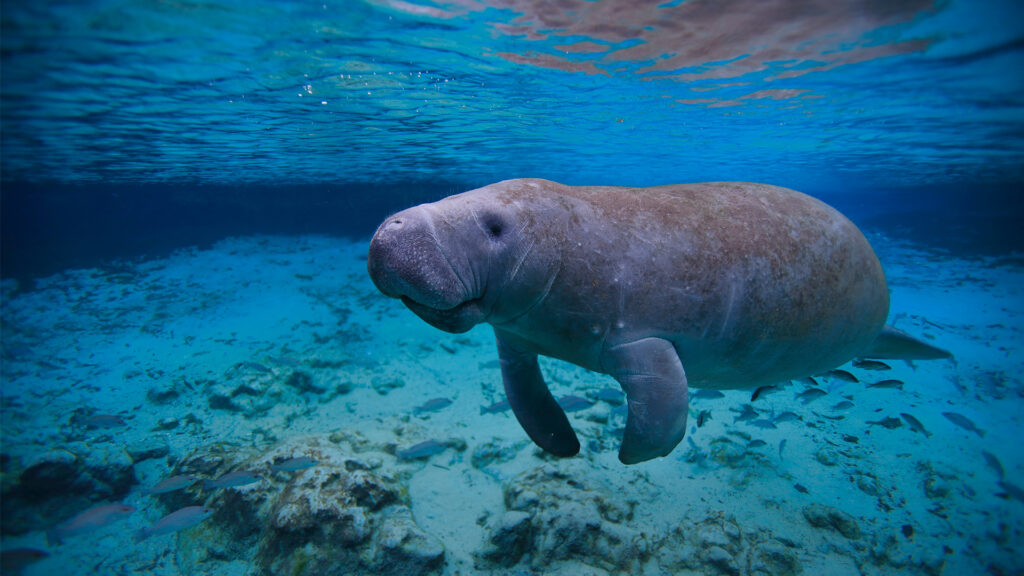A roundup of news items related to climate change and other environmental issues in Florida:
No lettuce for Florida manatees this winter: Experts end feeding trial after two years | Tampa Bay Times

For the past two winters, Florida wildlife biologists have experimented with feeding lettuce to hungry manatees along the state’s east coast in the Indian River Lagoon as the animals’ natural food source, seagrass, declined because of pollution.
This winter, though, there won’t be another feeding trial.
Wildlife experts say there are two main reasons for that decision. According to the Florida Fish and Wildlife Conservation Commission, there’s enough seagrass in the Mosquito Lagoon, where manatees linger during the colder winter months. Part of the massive Indian River Lagoon, the Mosquito Lagoon stretches along Brevard and Volusia counties.
First Coast counties unite in fight against climate threats | Jacksonville Today
Seven counties in Northeast Florida are joining efforts to reduce coastal flooding and battle increasing heat, pollution and storms.
Representatives of Baker, Clay, Duval, Flagler, Nassau, Putnam and St. Johns counties met Wednesday as part of the Resilient First Coast Collaborative, a partnership of government, business, nonprofit organizations, academic institutions and government officials.
Together, they discussed how to protect the region from the effects of climate change and how to find money for the work.
Mote Marine discovers huge potential in corals that thrived in this summer’s super-heated seas | WGCU
That something good can be found in the most negative of situations is often described as a silver lining around dark storm clouds, but silver linings work underwater, too.
Expectations were somber for the health of Florida’s Coral Reef and the Mote Marine Laboratory and Aquarium’s four offshore coral nurseries in the Florida Keys this summer, as the ocean experienced record-shattering high temperatures just like on land due to the heat wave blanketing the world.
Mote scrambled six ships and 70 staff members to collect thousands of stressed and dying corals from its four offshore nurseries in the Florida Keys and move them all to four inland facilities.
If you have any news items of note that you think we should include in our next roundup, please email The Invading Sea Editor Nathan Crabbe at ncrabbe@fau.edu. Sign up for The Invading Sea newsletter by visiting here.



